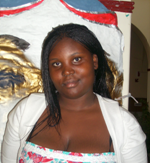
Modern researchers understand the indelible link between social and cultural issues and issues of the environment. This is why areas like cultural heritage have been integrated into the emerging Environmental Education curricula. Much of the ELRC’s work involves innovating such curricula and related resource materials, as well as supporting teachers on the ground who are challenged to help make these social-environmental links.
Recently, Clayton Zazu, an Environmental Education PhD scholar based at the ELRC, conducted a workshop which explored the representation and use of indigenous heritage-constructs in contemporary heritage education practices in post colonial southern Africa. The workshop dealt with the surfacing tensions around this topic and implications for achieving heritage-construct inclusivity. “Our purpose was to generate some ideas and to inform the production of a Heritage Education Toolkit that teachers can use to improve practice,” said Zazu who believes the workshop achieved its objectives.
Partnering with the South African Heritage Resources Agency (SAHRA), the ELRC drew multiple participants including twelve local teachers from the Makana District, the Head of Department and Head Officer from Grahamstown’s Albany Museum, as well as FET Subject Advisor and an Education Specialist from the Department of Education. In the four one-day workshops, teachers were able to create their own cultural heritage lesson plans. To better inform their projects, the participants took two local field trips, visiting Egazini Heritage Site, a local historical battlefield and Africulture, a centre for the conservation of Eastern Cape biodiversity.
“It’s a challenge, teaching about sensitive political and historical issues,” acknowledged Zazu, “I was there to help the teachers tease out ideas and examine their methods more critically.” For those teaching cultural heritage in southern Africa, making the curriculum relevant while providing a balanced and inclusive perspective is difficult to negotiate, said Zazu. An example of this is Julius Malema’s recent singing of “Kill the Boer”. One teacher discussed how curricula requirements compelled him to teach about struggle songs, yet he was concerned that discussing this song may be interpreted as taking Malema’s side. After discussing the issue, the teachers decided that using newspaper articles with different opinions was a balanced way of approaching the subject.
As the ELRC supports heritage-construct plurality, enhancing the quality and relevance of heritage education, its dual objective is to promote the sustainability of the region’s heritage resources. It’s all part of having a bigger vision for the social-environmental connection and creatively approaching the subject of sustainability.
